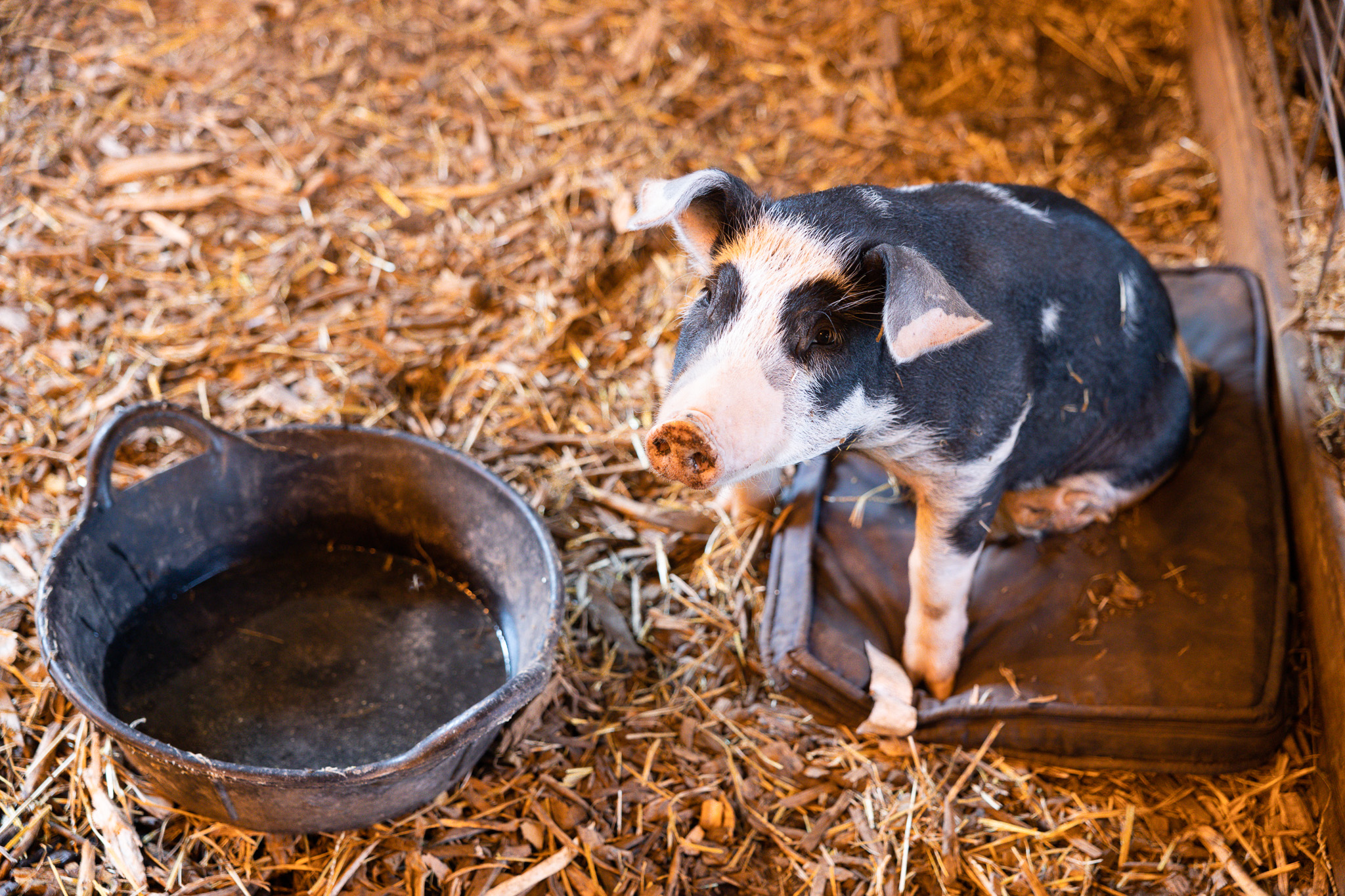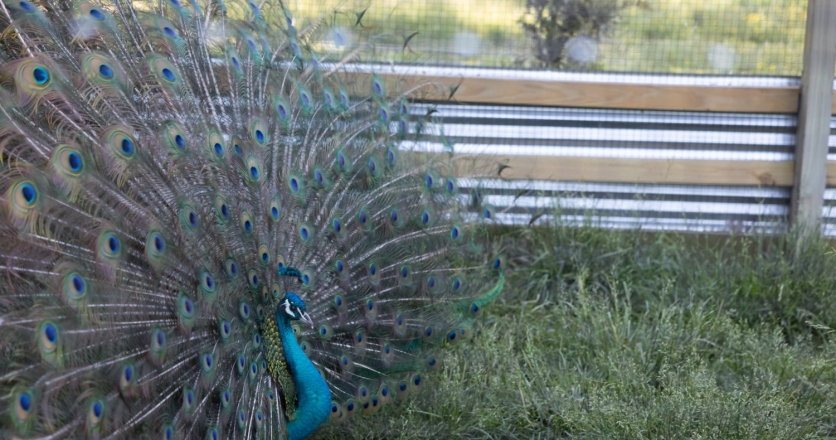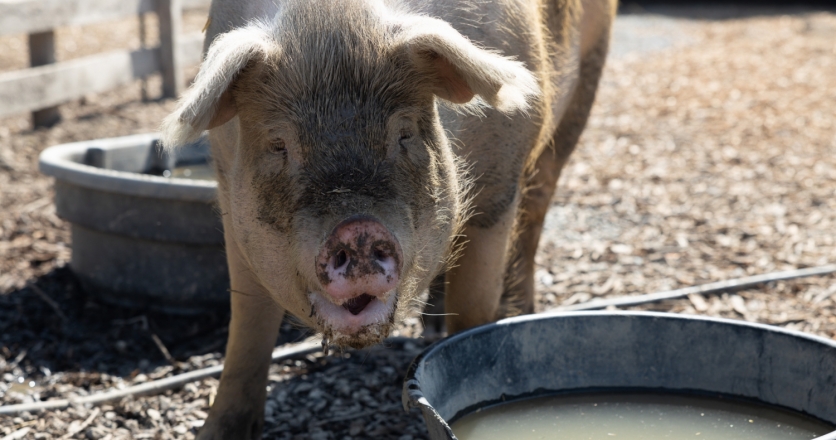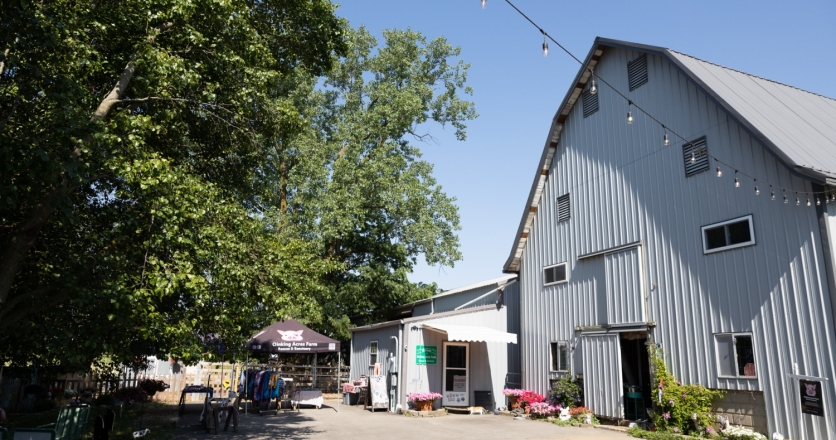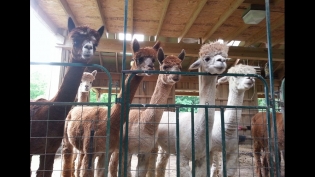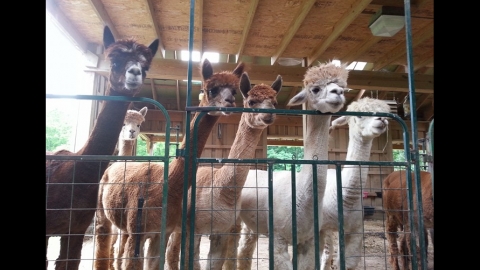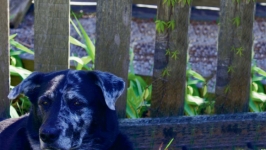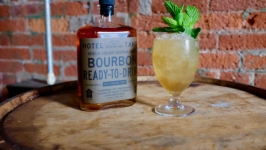OINK! OINK!
Olivia Head always knew she wanted to work with animals. She dreamed of living on the west coast, studying marine life. Fast forward to today and Olivia is still working with animals; these animals are just more accustomed to farms than the ocean.
When Olivia was 14-years-old, she adopted her first pig, Penelope, from a rescue group located in Plainfield, Indiana called A Critter’s Chance. She began working closely with the organization and ended up fostering pigs for them.
“The first four pigs that I ever fostered I ended up keeping, so I was not too good at the whole foster mom thing,” Olivia joked.
As Olivia and her mom started fostering more and more pigs, they realized they needed more space. They decided to move their operation to a barn located on their family’s property. The barn had one stall with one working light bulb. Eventually, Olivia and her mom transformed the barn and accepted a variety of animals into the space, not just pigs.
“The need was getting bigger, and it was clear that fostering alone was not going to be enough,” Olivia said.
So, when Olivia turned 16-years-old, she filed for a 501 c3 and obtained a non-profit status. And she, officially, opened up Oinking Acres in 2019 as a non-profit organization. Today, Oinking Acres currently houses pigs, turkeys, cows, donkeys, peacocks, miniature horses, goats, mules and geese. It serves primarily as a rescue, secondarily as a sanctuary.
“Our goal is to take these animals in, to rehabilitate them and then find them loving, wonderful homes of their own. We do take in quite a few animals that we are not able to rehabilitate to the point of adoption, and those animals will live out the rest of their natural lives here at the sanctuary,” Olivia said.
Due to the large variety of animals that call Oinking Acres home, the staff performs substantial research on all the animals to ensure proper, individualized care. Many of the animals that reside at the farm have complex medical needs and also require special diets. Therefore, Olivia relayed that she relies heavily on the expertise and advice of the doctors and veterinary students at the Purdue Large Animal Hospital in West Lafayette, Indiana.
Rogue, one of the pig residents at Oinking Acres, was 3 weeks old when she jumped off a transport truck and landed in the median on Interstate 465. A good samaritan picked her up, showed up to Oinking Acres and dropped her off at the facility. Rogue was then rushed to Purdue Large Animal Hospital to receive urgent medical care. She was discharged after several days and returned to the rescue to continue her rehabilitation.
Theo, another pig resident of the farm, was in such critical condition when he arrived at the farm that they did not think he would survive. He was found in a ditch, badly burned and starved. Again, with the help of Purdue Large Animal Hospital, Theo was able to receive the care he needed to make a full recovery and return to the animal rescue after several weeks, where he now spends his days with his best friend Rogue.
Olivia mentioned her phone rings non-stop during all hours of the day and night with requests to rescue animals. She said she gets anywhere from two to twenty-four surrender requests a day. Olivia emphasized that breeders often use terms such as tea-cup pigs, pocket pigs, apartment pigs, nano-pigs and pixie pigs to sell pigs to unsuspecting people; however, Olivia stressed these kinds of pigs do not exist. These pigs will grow and have specific needs. Therefore, it is important to do research and to understand what comes along with adopting and buying a pig. Oinking Acres’ main sourcing of animals comes from rescues of abuse cases, neglect cases and to assist animal control. They only accept animal surrenders in emergency situations or if the animal is in an unsafe situation. Despite the heightened need for care of these animals, Olivia mentioned the struggle for funding and the scarcity of resources available to help with the care and treatment of farm animals.
“It is very hard to say no, but it also gets to a point where we’ve come to the realization that we can’t take them all. And so, we don’t ever want to put the animals in a situation where we are not taking care of them because we have too many of them, we can’t afford to feed them, or provide them veterinary care. So, that is something that we keep in the forefront of every decision that we make. We want to make sure that the ones that we already have will be cared for no matter what. We don’t ever want to be a rescue that needs rescuing,” Olivia said.
Olivia revealed some of the details of the grueling, graphic phone calls she receives from people pleading for help on a daily basis. She also shared how sometimes Oinking Acres is not able to save some of the animals due to them being in too severe of a condition at arrival. In those cases, Olivia stated that they show the animals love and care during their final moments to show the animals that they are valued.
“It can be tolling at times for sure mentally, emotionally, physically but it’s also very rewarding at the same time,” Olivia said.
Though Olivia faces many challenges and many emotionally-taxing moments, she remains cheerful and positive about the work she and her team carry-out.
“When we take in animals that are very very sick and we are able to help rehabilitate them…seeing them out living life and enjoying what they were always meant to enjoy is very fulfilling,” Olivia said.
On Valentine’s Day this year, Oinking Acres hosted a Valenswine open house, where visitors could come and deliver Valentine’s Day cards to the pig residents. The rescue has also hosted events during Christmas time, encouraging visitors to bring Christmas presents to the animals and to donate gifts to help keep improving the facilities. Olivia stated that the rescue participates in off-site events like pig yoga and goat yoga, community days at their local Tractor Supply, and have run booths at Lowe’s to hand out information and garner donations in support as well.
“Any opportunity that we get to go out to the public and talk about what we do and share our mission with the community, we always take advantage of that,” Olivia said.
Oinking Acres is currently open to the public on Fridays and Saturdays from 11:00am to 4:00pm. They require a $10 donation per person to visit the farm. During the visit, guests can embark on a self-guided tour around the farm, with volunteers staged throughout the property to answer any questions. Olivia mentioned that guests can bring produce like apples, carrots and cucumbers to feed the pigs while they’re here as well.
Oinking Acres hopes to continue to grow by expanding their fencing and building additional barns along the property to house more animals in need. They are also seeking additional funding to provide more resources to their animals with special needs, to cook specialty diets for their more medically complex residents and to be able to treat the animals with more medically advanced needs, such as skin conditions.
If you would like to contribute, Oinking Acres accepts donations via PayPal, Venmo or mail-in checks. In addition, they have an Amazon wish list located on their website, where people can shop, send the animals gifts or purchase gifts benefiting the facility and their operations. Merchandise is also available for purchase online or in-person at the farm. Additionally, Oinking Acres is part of the Kroger community rewards program, where customers can link their shopper’s cards, connected to their Kroger accounts, and select Oinking Acres as the beneficiary.
You can follow Oinking Acres on Facebook and follow them on Instagram to stay up-to-date on all things at the farm.


